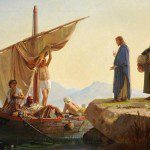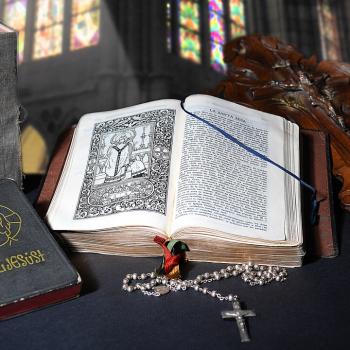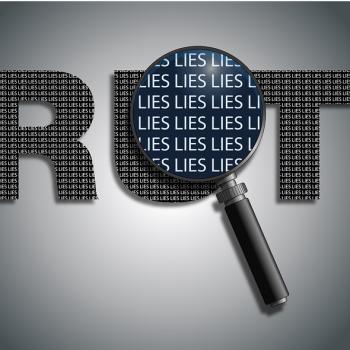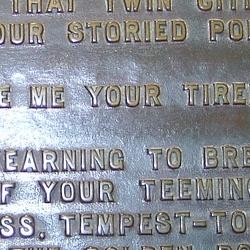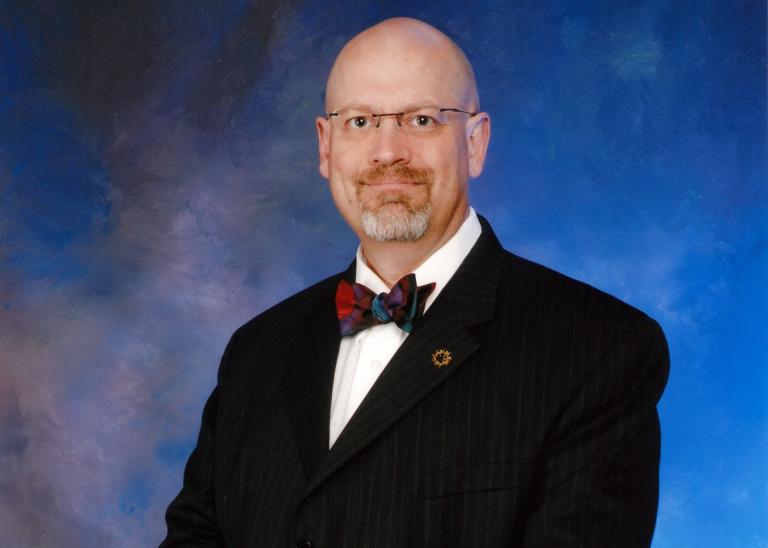
Consider, dear reader, if you will, these words: “The novelty of biblical revelation consists in the fact that God becomes known to us through the dialogue which he desires to have with us.” Does the author believe in sola scriptura? What do you think? For, after all, he describes the Bible as “novel.” That is to say, it is unique; it is different than anything else. More than that, he describes the Bible as the means by which “God becomes known to us.” He refers to it as God’s “dialogue” with us. He points to no other source of knowledge or dialogue with God.
i.
Now, before I tell you who wrote those words, let us look at a second passage, this one from St. Hippolytus of Rome (170-235 A.D.). (Dr. Joseph Mizzi quotes Hippolytus here as part of an effort to show that the Church Fathers believed in sola scriptura. Don’t let the “Dr.” confuse you in this context; he’s a pediatrician.) In Against Noetus Hippolytus writes: “There is, brethren, one God, the knowledge of whom we gain from the Holy Scriptures, and from no other source.”
That sounds very like the first passage, does it not? So alike is it, in fact, that the first could be nothing more than a paraphrase of the last.
The first was written by—well, you can find it here.
Quotations like these—look here what this Father said! tolle lege, papists!—are often used by Reformed apologists to prop up their false doctrine of sola scriptura. It can be convincing. The texts speak so highly of the Scripture as a rule of faith and source of truth. One may stumble over what to say in reply; for no one can have memorized all 38 volumes of the Fathers, such that—say, in a spar—he could always know the context, or whether his Protestant interlocutor is cheating in the accuracy. (I have an example of that below, in a quotation from St. Athanasius.) The best you might do, if it is an unknown text, is say, “I don’t in fact know; I’ll have to look that up later.” But then you come off as uneducated and bumbling. The Protestant scores another tick on his gotcha tally.
Dr.* James White (Th.D., D.Min., etc., etc.), of Alpha & Omega Sophistries, is no stranger to using this tactic in debate. (Just listen to the first few minutes of his opening statement in the 1997 debate on this topic with Gerry Matatics.) The first quotation is a case in point of what I mean. Benedict XVI, to be sure, is not someone the good Dr.* White would try to pass off as a supporter of sola scriptura. That way madness lies. But imagine that his words really had been written by a Church Father—say, Hippolytus. (The words, you recall, are near the same.) Unless you had a working knowledge of the context, and even the entire text itself, it would be a hard task for you to show how they do not support sola scriptura.
The real point to be made, though—as I have done here, in an earlier post—is that such texts never once speak of Scripture as the sole rule of faith. Now, to be sure, they do speak highly of it. They do appeal to Scripture to prove some point of doctrine. That is so. But when speaking of it thus, they never speak of it in terms to which the word “sola” could fairly be applied. Look at the quotation from Hippolytus again. “There is, brethren, one God, the knowledge of whom we gain from the Holy Scriptures, and from no other source.” At once, the Protestant apologist will point out the phrase “from no other source” and cry: “That is exclusivity!” But—here’s the key point; look you—what exclusivity does Hippolytus claim for Scripture? Does he say that Scripture is the sole rule of faith and practice? Not at all. He says that Scripture is the sole source of the knowledge of God. That’s different: Pope Benedict XVI approaches the very same claim in Verbum Domini. As far as I know, the pope is not an advocate of sola scriptura. Not even the good Dr.* White would want to claim otherwise; I trust him to be that far sane.
Dr. Mizzi, on his site, lists several passages like that from the Church Fathers; many are from St. Augustine, as though that could dumbfound a Catholic who was not wholly ungrounded and had heard the name. He says they support sola scriptura, but very few of them, even on the surface, make any claim of exclusivity. As an example, take this one from St. Basil the Great. In Moralia 72:1 he writes: “The hearers taught in the Scriptures ought to test what is said by teachers and accept that which agrees with the Scriptures but reject that which is foreign.”)
(That would be scann’d; the syntax is muddled. A better rendering would be: “Th[ose students who have been instructed] in the Scriptures ought to test what is said by [their] teachers and accept that which agrees with the Scriptures but reject that which is foreign.”
Syntax aside, however, all that Basil says here is that a legitimate teacher should not contradict the Scriptures (“reject that which is foreign”). But this does not touch upon the doctrine of sola scriptura in the first place. No Catholic defends tradition contrary to the Bible. No Catholic says you must listen to your priest or catechist if he says things the Bible refutes. And St. Basil himself says nothing about traditions that are neither in the Bible nor forbidden by it. He says nothing that any Catholic would reject.
ii.
This page on Dr. Mizzi’s site, with citation after citation like that—fractioned, skewed, garbled, cloaked—is little more than a masque for a defense of sola scriptura. If you look behind the masque, you will find that the Church Father is making a far different point. Maybe Dr. Mizzi is confused himself; I cannot say. But it would be unjust to accuse him of deliberate deceit. Shame upon him who even whispers such a cruel charge; sooth, I reject it out of hand, and call such knaves unworthy of the name “apologist.”
But in fact, the most convincing passage Dr. Mizzi offers—and the most free of any the least hint of shame on his part—is the one from St. Athanasius’s Against the Heathen. Here is Dr. Mizzi’s very selective quotation: “The holy and inspired Scriptures are fully sufficient for the proclamation of the truth.” Well, dash my veskit, that sure sounds like sola scriptura! One problem: Dr. Mizzi leaves out this very important word, which precedes the quotation: “Although.” Yes, that changes things, as the salt said to Lot.
Here is the full text.
For although the sacred and inspired Scriptures are sufficient to declare the truth—while there are other works of our blessed teachers compiled for this purpose, if he meet with which a man will gain some knowledge of the interpretation of the Scriptures, and be able to learn what he wishes to know—still, as we have not at present in our hands the compositions of our teachers, we must communicate in writing to you what we learned from them—the faith, namely, of Christ the Saviour; lest any should hold cheap the doctrine taught among us, or think faith in Christ unreasonable.
This would be unpacked. Athanasius here makes mention of two things that are the wery life and blood and sinew and bone of every Catholic apologist’s body of arguments against sola scriptura. The first is that not every Christian will have access to the Bible. “We have not at present in our hands the compositions of our teachers,” he says. How are they to be guided by Scripture alone if they don’t have it in the first place? Now, that was particularly true in his time; for it was not until the invention of the printing press, 1400 years hence, that the Scriptures could even begin to be available to the average person. And even then it would take centuries more before a man could afford a copy all his own. And what of places and times with poor literacy rates?
Indeed, it might even be said—and as an aside; this is a topic large enough to merit a blog entry of its own—that sola scriptura is the bias of a print culture. Prior to a printing press, prior to being able to buy a copy all your own, and sit under a tree, and mark it up, and pope yourself, a Christian relied for his knowledge of the faith not on reading the Scriptures but on hearing the words of his teachers. He heard the Bible when it was read at Mass; he heard it glossed by homily; he learned the faith by instruction and catechism.
The second thing that Athanasius points out is the reason teachers are needed in the first place: so that the Christian may obtain “some knowledge of the interpretation of the Scriptures.” He cannot just be left alone with them. (He could not have been, then, in the first place, when texts were few and made by hand.) They must be interpreted, and the disciple guided and taught in the proper exegesis of Scripture. There is no mention, in any of this, of a book that can perform magic and exegete itself.
So what we have in Against the Heathen is a distinction between what we call, today, the material and the formal sufficiency of Scripture. The Bible does contain, in some form, even if just ovum, all true doctrine. It is “sufficient [in its material, or content] to declare the truth.” No Catholic need fear that. Amen, Lord Jesus. But a “Bible alone” doctrine must go further; a “Bible alone” doctrine must posit that the Bible can be rightly interpreted by anyone who takes it up, without the guidance of the Church—as though it were sufficient unto itself, in its form as well as its content. Try to find the Trinity in the Bible, spelled out as such, that it could not be denied. The Westminster Confession of Faith, in its discussion of sola scriptura, tried to claim that the Bible, somehow, if you bounce about from text to like text, interprets itself. (As though the cross-references in the margin come from God.) A teaching Church is not needed; the Trinity is self-evident in Scripture. But if the Bible alone could achieve what the WCF says (and I am here to say that no text can), why do Protestants not all agree with each other on all things? Why do Unitarians exist? Why do Calvinists and Arminians both cry, “Scripture alone”? No. Although the Scriptures are sufficent in content, Athanasius says, right interpretation must be guided by the Church. That is why the Church is one, and Protestants are 48,500.
Thus is Dr. Mizzi’s partial quotation of Athanasius misleading. It seems chopped off at the head by craft alone, whether the craft belonged to Dr. Mizzi or he borrowed it from elsewhere and failed to trace the source to the original text. I can’t say. But far from defending sola scriptura, Athanasius denies it.
iii.
But if, dear reader, you are struck with the irony of sola scriptura Protestants trying to defend a “Bible alone” doctrine from sources outside the Bible, you are not alone. Why quote the Fathers if the Bible is enough? Why not just quote the Bible? That is the foundry into which they have forged themselves. Sola scriptura is not in the Bible, so how is it to be defended? Only from outside the Bible! And indeed, the Protestant does understand the importance of finding evidence that the earliest Christians held and practiced this doctrine. Without it, sola scriptura appears to be what in fact it is: nothing more than the idiosyncratic novelty of a group of wild rebels, which took hold three-quarters of the way into Christianity’s 2000-year history. It is not enough to say that Martin Luther stated the doctrine, or John Calvin. The Protestant has to find some earlier tradition, deep in history, and claim that Luther and Calvin restored it. But an even cursory look at some of these quotations shows that they have not been doing a very good job at that.
Dr. David Anders, who writes for Called to Communion, explains the difficulty that the Protestant apologist has historically had with the doctrine of sola scriptura (the audio starts around 34:00).
The Reformers had no defense for sola scriptura; they merely asserted it. They had a few arguments here and there. But they basically were things like, “Well, we should listen to the voice of God and not men”—truisms that don’t amount to real argument, that prove nothing. Or, “Jesus condemned tradition when he assaulted the Pharisees and rabbis.” But no sustained argumentation in favor of it: We know from divine authority that the Bible alone is the sole rule of faith. … Of course, today in the 20th century, 21st century, you do find Evangelical theologians who realize they finally have to tackle this subject and deal with how do we really know that the Bible is the sole rule of faith. Very big, ironic discovery: They appeal to tradition. To justify the notion that the Bible is the sole rule of faith, they appeal to tradition. They find some Church Father who gets in a theological debate and appeals to Scripture … or they point to Luther and Calvin, or they point to their own experience. But their main argument in favor of the Bible is an appeal to tradition.
And that all brings me full circle to a claim made by the good Dr.* White’s prime toady, the glib and anonymous TurretinFan. In his recent debate with Catholic apologist William Albrecht, he said, “Sola scriptura is what we do to the Bible once we have the Bible.” That is not a new claim by any means; the good Dr.* White himself, in a 1997 debate with Gerry Matatics, said that “sola scriptura is a doctrine that speaks to the normative condition of the church, not to times of enscripturation.” At bottom, these are appeals, not to the Bible, but to tradition. Dr.* White does not refer us to a text of Scripture, but speaks of some “normative condition,” outside of Scripture and subsequent to Christ, the apostles, and the early Church Fathers.
Now, if that is the case—if sola scriptura is true but comes later in time, once we have a text and a settled canon and on and on—one naturally wonders why these men put so much labor and invention into finding the doctrine in Scripture or the Church Fathers. Why would they have to, if it is because it is and they say so and that settles the point? With simplicity like that, who needs craft? But it is not so neat. An appeal to some “normative condition,” binding upon Christians, is contrary to the very idea of sola scriptura. If that is what the doctrine is, it fails its own test. I do get it, though, that Reformed apologists like Dr.* White (Th.D., D.Min., etc., etc.) and TurretinFan are—as Dr. Anders points out—trying at last to take up the burden and show how sola scriptura is true. I just don’t think they do a very convincing job of it.
iv.
So with all that said, I have three simple questions for Dr.* White, or TurretinFan, or John Bugay, or any other Reformed apologist who would like to answer.
1. Who was the first person to defend sola scriptura by calling it a “normative condition” of the Church? Who first defined sola scriptura in these (or similar) terms?
2. Who was the first person to define the doctrine of sola scriptura itself? (And I’m not talking about Church Fathers who use the Bible to prove a theological point, or who speak highly of the Scriptures. I’m talking about a Church Father, or anyone, who credibly and demonstrably speaks of the Scriptures as a “sole rule of faith.”)
3. If sola scriptura is not to be found in the Bible, and it is not to be found in the Church Fathers, then how—apart from an appeal to tradition or “normative conditions”—is it to be defended? And how is that not self-contradictory?
Answers to these questions will help me a great deal in my ongoing look at the issues of sola scriptura, the canon of Scripture, and ecclesiology.
***
If you like the content on this blog, your generous gift to the author helps to keep it active. I remember all my supporters in my Mass intentions each week.



